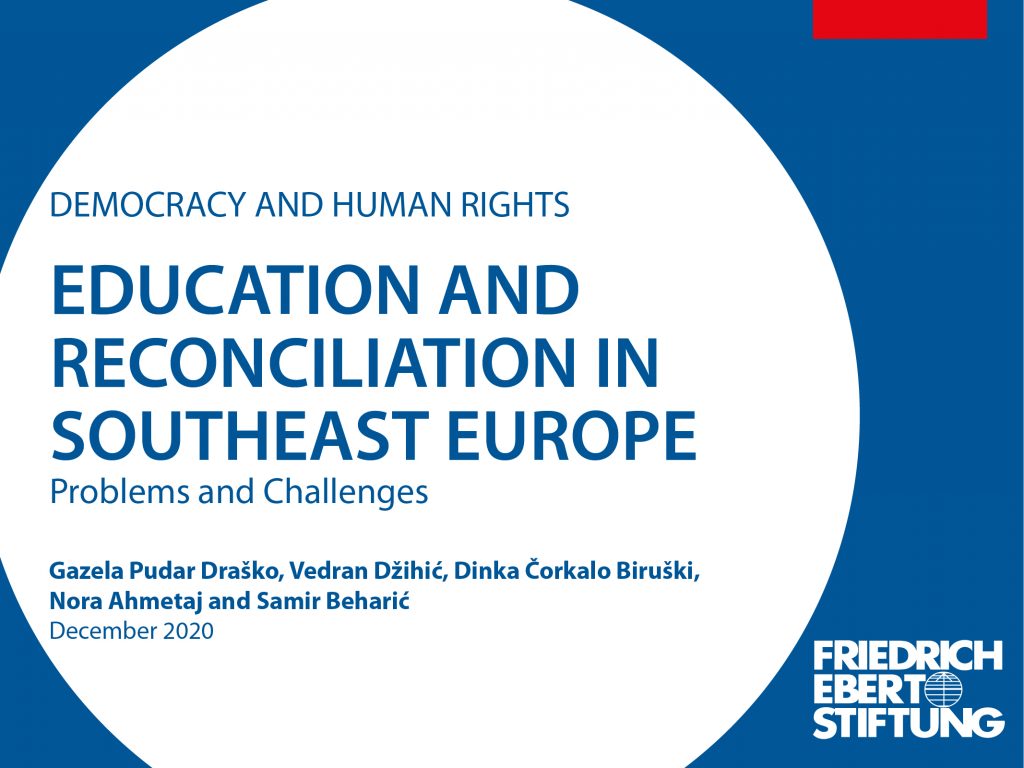17 Dec Education and reconciliation in southeast Europe
In the long run, an education approach based more on how than about what to learn would help enable the students to critically approach their own ingroup
wrongdoings and historical delusions and build critical thinking about the past.
Educations based on facts rather than on »own versions of the past« and the politics of victimhood can lay the ground for reconciliation and overcoming
even political and identity-based conflicts of the past.
Courageous public action against ethnic segregation in schools, nationalism, and politics of conflicting victimhood can result in profound changes.
Whole study in English can be found here



